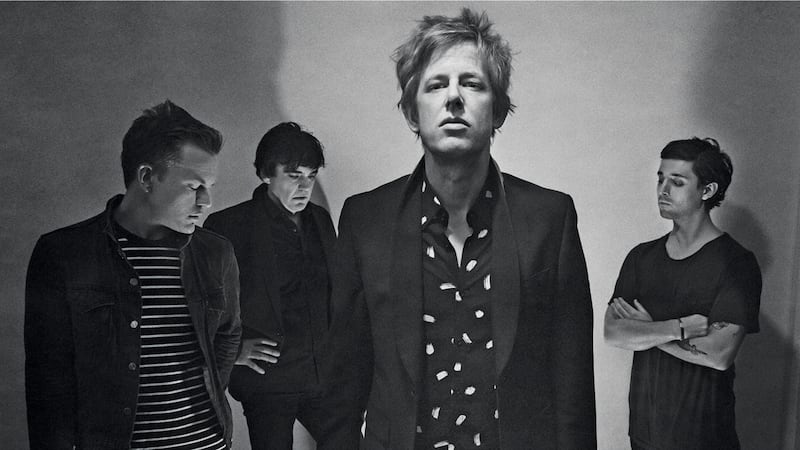When I was around 16, I started listening to indie rock. I remember exactly what I was looking for—something weird. Sonic Youth leaning a guitar against a powered amp. Jeff Mangum's lengthy discussions about Anne Frank. Animal Collective and Deerhoof making pop formation music somewhere at the edge of sense. I saw myself as the boy with the liberated ears, an early copy of Pitchfork—like the website somehow manifested into a magazine—in one hand and a spoon in the other, digging my way out of the prison of radio orthodoxy.
Coming from this context, Spoon—the band—never meant much to me.
I would hear people rave about Kill the Moonlight, and I would listen and just think it all sounded so…normal. The guitars were so neat and clean. Britt Daniel's voice was buckled down and restrained. The songs were straightforward, in and out in three minutes. I was looking for something wild, and Spoon was almost going out of their way to keep on a sidewalk of conventional listenability. I guess I thought "Sister Jack" was a jam, but everything else just seemed so, I guess, tethered.
When I got older and lost some of my youthful nonsense, I revisited the band and started to get it. I remember hearing "Don't Make Me a Target," the first song on 2007's Ga Ga Ga Ga Ga, for the first time, hearing that wound-too-tight structure collapse into a spazzy, kicky guitar solo at the bridge, and beginning to understand what Spoon was all about.
It was rock music made with intimate knowledge of the history and value of eccentric American indie rock but decides to stick it in a straitjacket and hold back at every occasion, creating a sort of push-and-pull dynamic against the natural tendency of an American indie-rock band and the clenched teeth of Daniel's vocal delivery and atomic-clock precision of his bandmates.
As I begin to round off into the nightmare of middle age, I understand Spoon more than ever. In the years that have followed my tempestuous and idiotic youth, I have taken up meditating every day, doing what I can to objectify my feelings and discard them at will, learning to shut my big fucking mouth and suppress stupid shit I felt like I had to say to everyone in earshot. In a culture that has abandoned the slick moderation of the aughts—be it in pop music, where Carly Rae Jepsen is somehow considered a minimalist, or in the White House, where a guy nicknamed "Mad Dog" is regarded as the administration's only moderating influence—Spoon's clenched minimalism has gone from seeming like an indie-rock band that flirts with popular currents to a balls-out, countercultural canoe stoically paddling upstream. It's really fantastic.
Spoon plays Aug. 27 at 5:55 pm.
MusicfestNW presents Project Pabst is Aug. 26-27 at Tom McCall Waterfront Park. Get tickets here.

Welcome to MusicfestNW presents Project Pabst || An Annotated Guide to Iggy Pop's Body || Beck's Multiple Personalities || A Super-High Die Antwoord Videography || Nas' Greatest Beefs || Father John Misty: Genius or Troll? || How I Learned to Love Spoon || Five Facts About Lizzo || Filthy Friends Q&A || Frankie Cosmos || White Reaper || RVIVR || Noname || FIDLAR || Whitney || Pup || San Fermin || The Last Artful, Dodgr || Lithics || Beer, Food, Games & More
